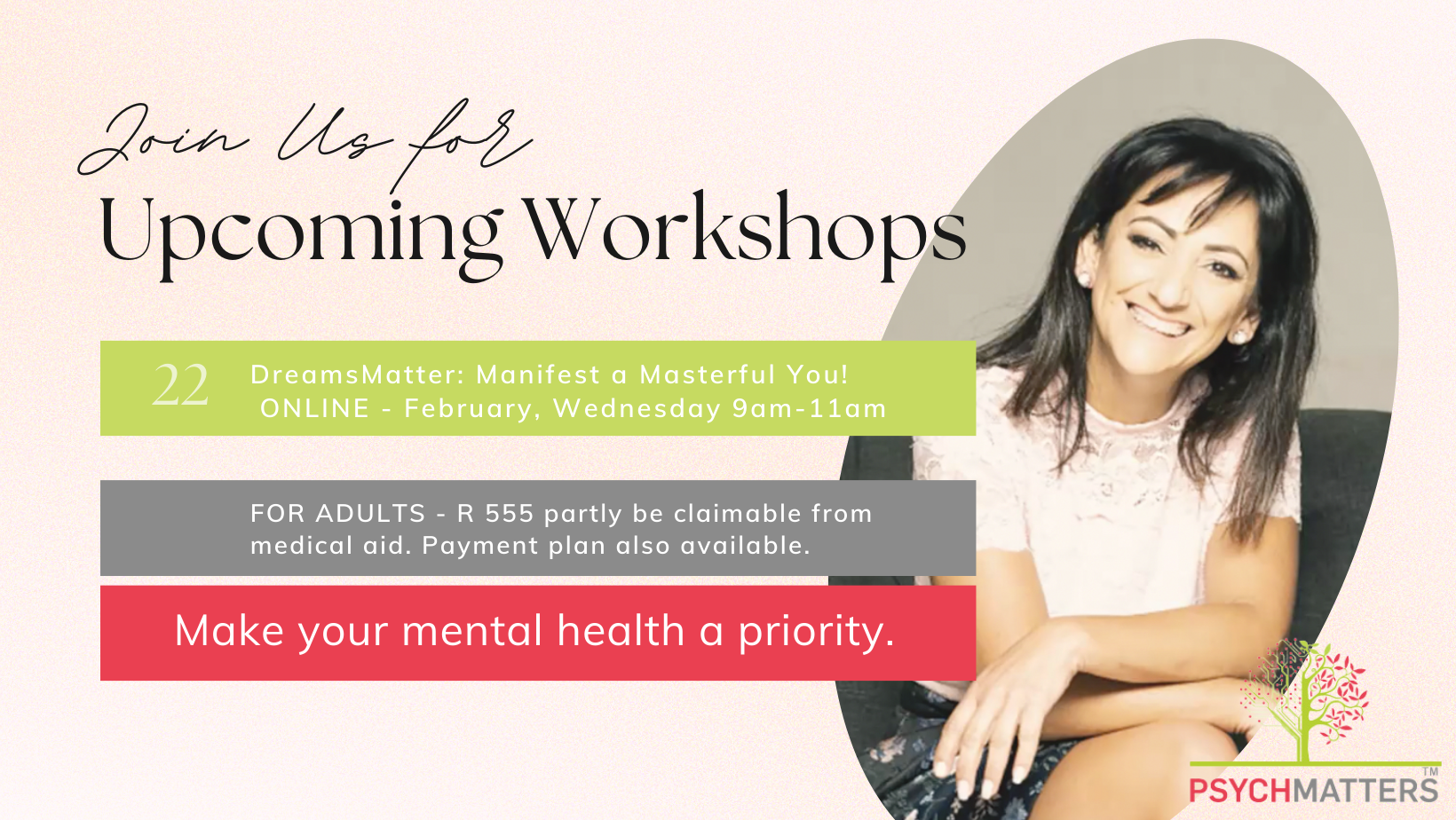How shedding the load on loadshedding can build resilience as we’ve entered a new year thankfully unmasked and less sanitised here in South Africa, what has your life unmasked and revealed? What has surfaced from the shadows that you can no longer hide? We all wear masks, some very useful and necessary to cope with life, others keeping us locked in denial, blinded by what we do not want to see or “face’, locked in pain, suffering, or fantasy waiting for the bubble to burst – of what it truly means to live an authentic, empowered and joyful life.
The sequelae of the pandemic and now the persistent power cuts have really pushed our people over the edge, having little or no “skin” left to tolerate daily frustrations, enraged, irritability the tone of the day, and many living in despair, despondent and hopeless with no will to keep on. As South Africans, we are known to be a resilient nation, but tolerating a system that does not care for its people, is like a parent abusing their child and making it ok. Martin Seligman, the father of Positive Psychology coined the term ‘learned helplessness” defining it as an organism learning to accept and endure unpleasant stimuli, and unwilling to avoid them, even when it is avoidable.”
Loadshedding for now is here to stay. Without becoming complacent, taking on learnt helplessness, or feeling depressed or overwhelmed by the power outages, it got me thinking about how can we remain empowered whilst the power is out.
When we face adversity, misfortune, or frustration, resilience helps us bounce back. It helps us survive and even thrive in the face of adversity. Masten (2018) is known for her work on resilience within family systems and defines resilience as “the capacity of a system to adapt successfully to significant challenges that threaten its function, viability, or development. Seligman identified 3 variables(3Ps) keeping us non-resilient:
Personalization – a cognitive distortion which internalizes and holds us accountable for problems, failure and unwarranted self-blame which makes it harder to bounce back.
Pervasiveness – the assumption that negative situations spread across all different areas of our life; e.g., failing an exam means I will be a failure in life or all is doom and gloom or a bad feeling permeates to it being a bad day.
Permanence – a deep belief that bad experiences or events last forever, rather than being once-off or transient. Permanence prevents us from putting effort into improving our situation, often leaving us feeling overwhelmed and not able to bounce back.
By recognizing the above 3 Ps’, we can become more resilient and learn to bounce back from life’s challenges.
So, by taking the time to reflect and shedding outmoded beliefs and irrational feelings, what else can we symbolically shed to lighten the load? How can we learn to be flexible and learn to live decluttered, more resilient and lighter?
Dr Ginsburg, a paediatrician and human development expert, has identified 7 interrelated variables that make resilience – competence, confidence, connection, character, contribution, coping and control.
Using Dr Ginsburg’s 7 variables to being resilient, and drawing on our South African capacity to remain a resilient nation, here are some more tips:
- Connection – stay in touch, not just online, as loadshedding gives us the opportunity to build and rebuild those real in-person connections. Whip out the large family puzzle or lego project, or learn a new board game, or have a picnic in the candle-lit dark.
- Competence – use this time to recognize your abilities, draw on your strengths through these challenging times and link them with what you can do to improve the situation. Educate yourself on alternate ways to save power and find alternate power solutions. I heard inventive ways on the radio – creating a solar hat that can power up our phones or laptops. Tap into your creativity. Years ago my father who was big on saving water, during the Free State dry spells, created a plastic water catchment to water our plants outside with coke bottles years before the JoJo tanks.
- Confidence – a positive self-belief and esteem goes a long way. If you feel your worth has been compromised by all this adversity and what you having to deal with daily, there are skills you can learn to rebuild or have a renewed sense of confidence.
- Character – a resilient person sees challenges as an opportunity to grow and ways to build inner strength. Notice and reflect on how you deal with challenges constructively or destructively. Characteristics like gratitude, kindness, hope, and bravery have been shown to act as protective factors against life’s adversities, helping us adapt positively and cope with difficulties such as physical and mental illness. Internal processes that resilient people draw on are our determination, social connectedness, and emotional regulation. Positive emotions also facilitate growth and impact positively on physical health and psychological wellbeing.
- Coping – use constructive ways to cope. A fifteen walk outdoors can significantly improve mental health. Use Stage 4 loadshedding to get to read a real paper through your fingers book you’ve been putting off. Reading for just 6 minutes could reduce your stress levels by up to 68%. Or do an online detox. Or a garage detox and declutter what is carrying the load. Reach out to a great therapist to help you “load-shed” thoughts, feelings and events that you have been carrying.
- Control – recognize what is in your control and address it and what is not in your control and release it. Use the silence to get back to basics and go inward, be present, and use the off the grid time to plan and prioritize.
- Contribution – Find ways to participate in your family/community projects like putting your hand up to volunteer at your child’s school, or a shelter or sorting out potholes in your area. Taking action for the benefit of others can be very empowering and rewarding.
Shed the load. Shine the light inward. If you are finding it hard to bounce back under another “unprecedented” time, you can’t just “shake” off the knot in your stomach, or your life feels like it is falling apart give us a call or WhatsApp us on +27629758442 or get in touch emailing to info@psychmatters.co.za (Monday to Saturday)
Mental health matters and living an inspired life is our mission. Our team at PsychMatters can assist with play therapy for children, psychotherapy for teens, adults, couples, and families. We have a special interest in processing traumas through BWRT l EMDR l TIR techniques, dealing with all difficulties related to divorce (mediation l access l parent-co-ordinating, case management) as well as forensic assessments for the RAF. We are also inspired to assist our people in their place of work – with our specialist corporate/executive coach on board.
Make your personal growth matter by booking in your 2023 calendar Masterclasses that are partially claimable from medical aid/payment plan offered.
Masterclasses 2023
Book your spot and put the spotlight on your mental health!
PsychMatters is also privileged to be collaborating with the Nelson Mandela Children’s Fund. A mental health resilience kids activity book created by Joanna Kleovoulou our clinical psychologist and founder – proudly endorsed and % of proceeds benefitting their Child Safety and Protection Programme.
Support our mental health initiative and buy a book for mental health!
R149 only! Enquire for discounts for bulk orders!
Subscribe to our newsletter!





